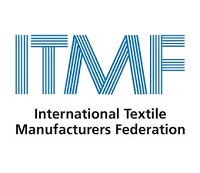 At International Textile Manufacturers Federation’s (ITMF) Hybrid ITMF Annual Conference 2020 held on October 22, 2020, the Committee of Management of the Federation elected new board members for 2020-22. Ruizhe Sun, President, China National Textile and Apparel Council (CNTAC), was elected the new president of the federation. An engineering graduate with an EMBA degree, Sun started his career in 1985. Currently, he is a professor-level senior engineer and the Vice Chairman, International Textile Manufacturers Federation (ITMF), Chairman, Responsible Supply Chain Association (RSCA), CNTAC, and Director, China Textile & Garment Brand Strategy Promotion Committee.
At International Textile Manufacturers Federation’s (ITMF) Hybrid ITMF Annual Conference 2020 held on October 22, 2020, the Committee of Management of the Federation elected new board members for 2020-22. Ruizhe Sun, President, China National Textile and Apparel Council (CNTAC), was elected the new president of the federation. An engineering graduate with an EMBA degree, Sun started his career in 1985. Currently, he is a professor-level senior engineer and the Vice Chairman, International Textile Manufacturers Federation (ITMF), Chairman, Responsible Supply Chain Association (RSCA), CNTAC, and Director, China Textile & Garment Brand Strategy Promotion Committee.
Other appointments
K V Srinivasan from India and Juan Parès from Spain were elected new vice presidents. Ernesto Maurer (Switzerland) was elected as the new treasurer. The Netherlands-based Loek de Vries, Indonesia-based Michelle Tjokrosaputro and Egypt-based Mohammad Kassem were re-elected board members.
The Netherlands-based Loek de Vries, Indonesia-based Michelle Tjokrosaputro and Egypt-based Mohammad Kassem were re-elected board members.
The Committee of Management elected Mustafa Denizer (Turkey), Uday Gill (Thailand/Indonesia), Salman Ispahani (Bangladesh), Suchita Jain Oswal (India), Taejin Kang (Korea Rep.) and Yingxin Xu (China) as the new board members. Rafael Cervone (Brazil), John Cheh (Hong Kong, China), Andrew Macdonald (Brazil) and Muharrem Kayhan (Turkey) were also co-elected as board members. Korean representative Kihak Sung (Korea Rep.) was elected honorary life member of the federation in recognition of his outstanding contribution as Vice President (2016-2018) and President of ITMF (2018-2020).
From cotton to multi-fiber industry
One of the oldest non-governmental organizations, International Textile Manufacturers Federation (ITMF) founded in 1904, it was initially named International Federation of Master Cotton Spinners and Manufacturers Association,’ and often referred to as the ‘International Cotton Federation.
Headquartered in Manchester, the federation represented and promoted the interests of global cotton spinning and manufacturing industries. The advent of man-made fibers broadened the raw material basis of the cotton industry. At the same time, vertical integration in textile enterprises changed the structure of the industry and broadened its scope to a multi-fiber, multi-process industry.












